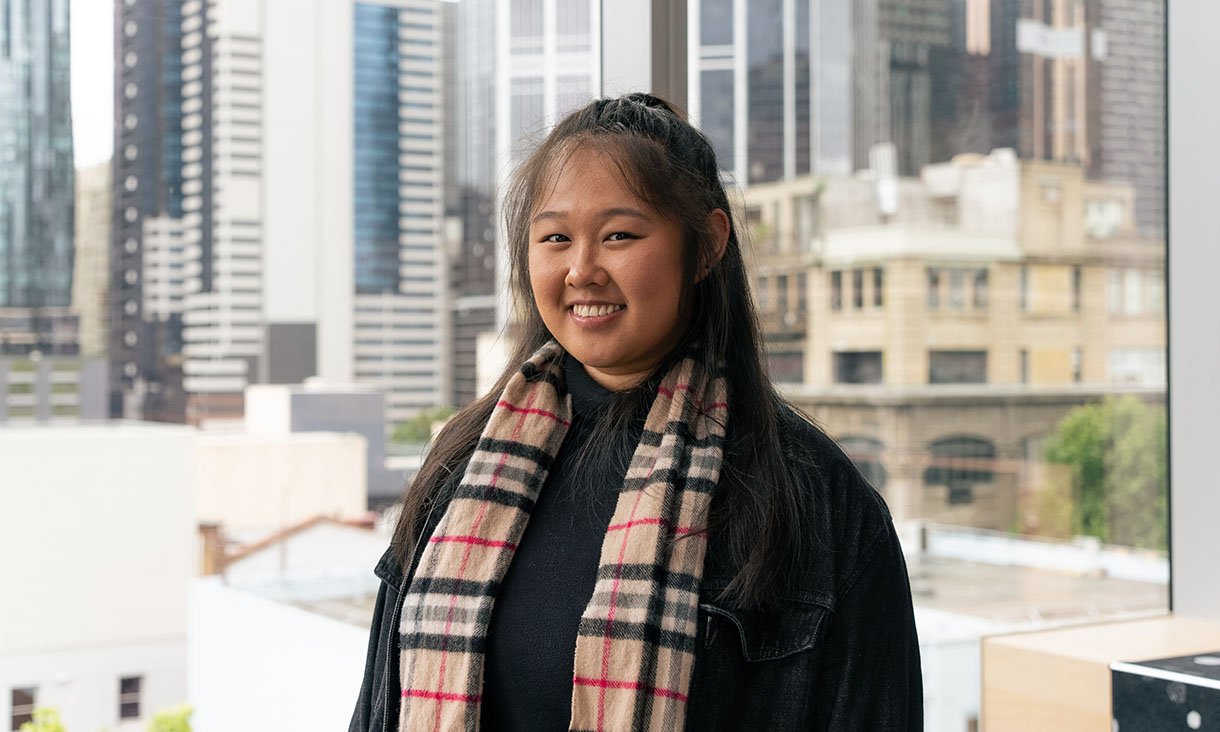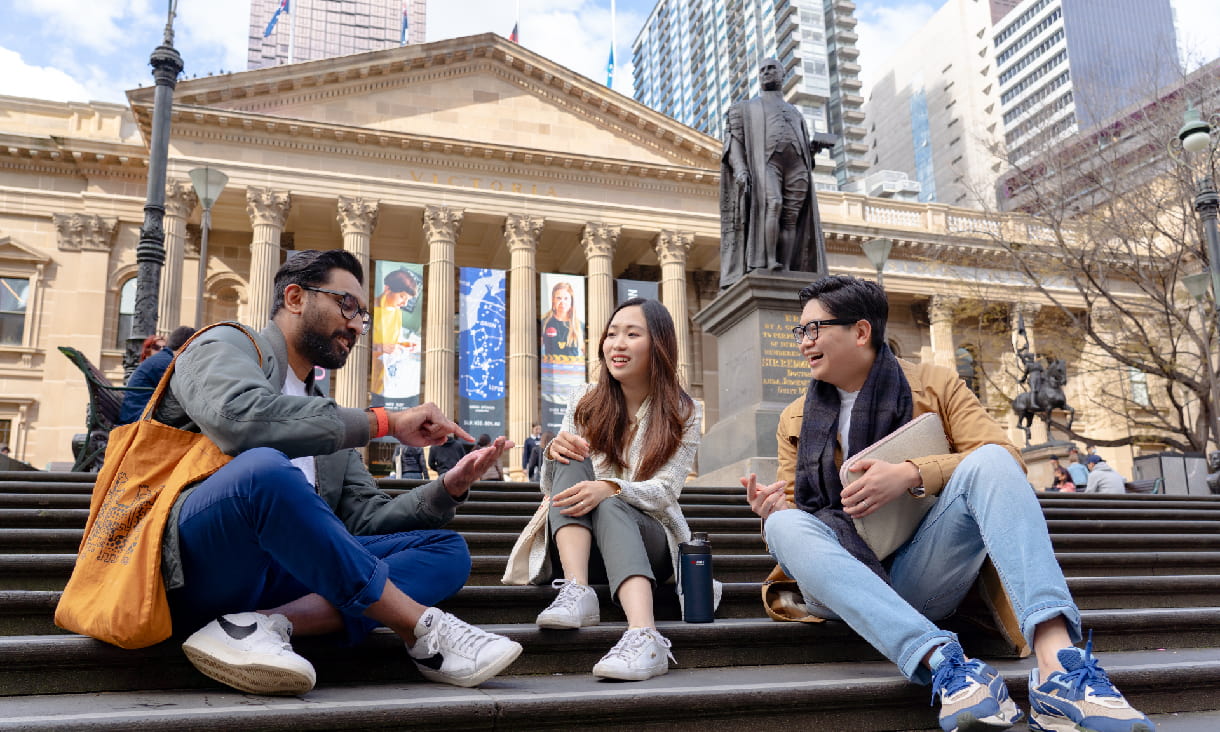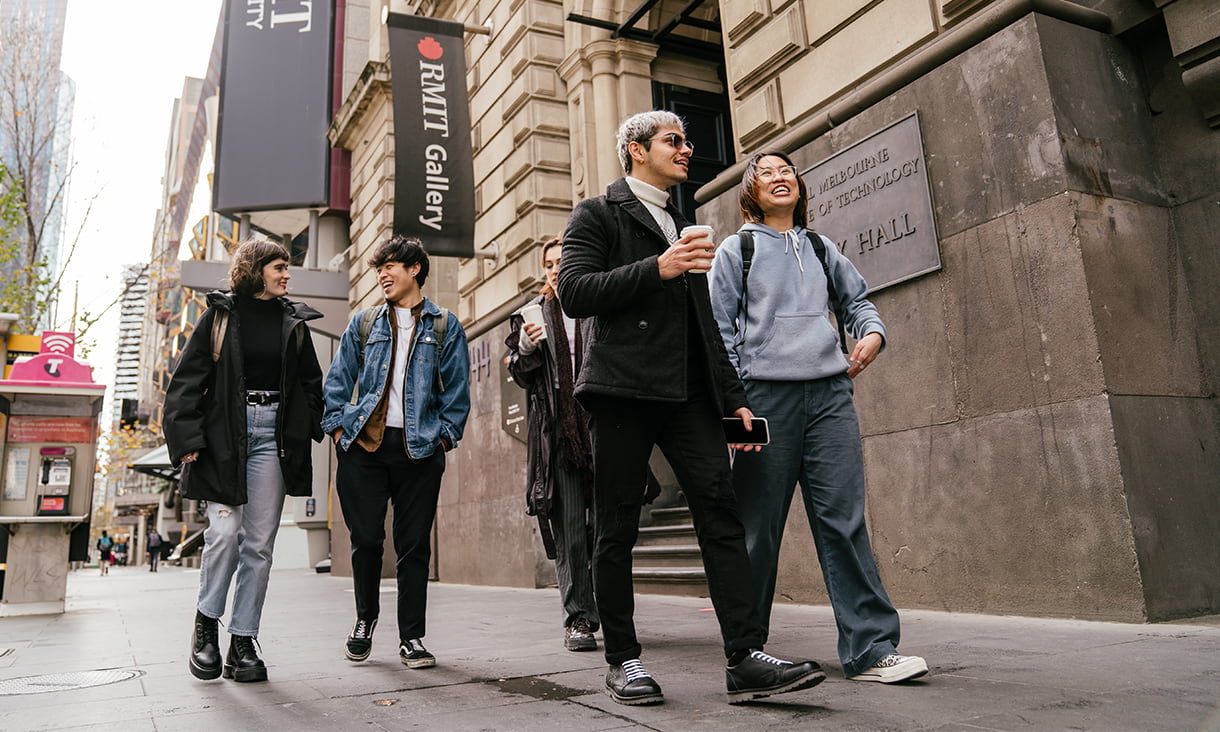With graduation on the horizon, it’s been one very fulfilling RMIT journey for Chinese engineering student Winnie Lu.
As an eager and ambitious teenager, Winnie made the move to Melbourne from Shenzhen in the Guangdong Province of China in 2014. She completed VCE before embarking on her university journey at RMIT, studying a Bachelor of Environmental Science/Bachelor of Engineering (Environmental Engineering) (Honours).
Amongst Melbourne’s bustling city streets, Winnie found her groove in university life, determined to make the most of her experience by actively engaging in RMIT social events, leadership programs and volunteer opportunities across a range of activities and clubs.
Now, with memories to cherish for a lifetime and a rich learning experience steering her inspiring career path, Winnie shares her experience and advice for any international student considering RMIT, the place that she says, “feels like home”.

RMIT 2023 graduate Winnie
Winnie moved from Shenzhen, China to study in Melbourne and made lifelong friendships, discovered a love of the outdoors and experienced enriching global study tours before graduating with a Bachelor of Environmental Science/Bachelor of Engineering (Environmental Engineering) (Honours).

What attracted you to your field of study, and why did you choose RMIT?
One of the biggest factors would be my parents. They suggested environmental engineering out of all engineering streams with an insight of how it may be beneficial and needed in the future, regardless of where I will be around the globe. Also, my mum is a florist, so I thought ‘environmental’ related engineering may be interesting.
Secondly, it would be my enjoyment in STEM subjects during middle school in Melbourne (2014–2016 for Year 10–12 secondary studies).
And thirdly, it would be the people who I had spoken to when I was in Year 11 and Year 12. Asking for advice made me decide that RMIT may be somewhere I would enjoy studying. I was also advised that RMIT provided hands-on opportunities, leading to transferable soft skills, personal development and becoming work ready. I'm really happy that I chose RMIT.
What have been the highlights of your learning experience in preparing you for the future?
I would say the laboratory experiences. For environmental science, I had the opportunity to go to Fiji and we had the chance to learn how to use on-site testing instruments in the area. [In engineering] we had different projects, we designed our lab work, and we presented our results at the end.
In terms of the skills that I’ve gained to prepare me for the future, I would say project managing, organisational skills and leadership when working in a group.
Where do you hope your qualification will take you?
I’m hoping my qualification will take me into the engineering industry as I’ve dreamt of, specifically to the environmental engineering sector. So far, my current qualification has led me to a postgraduate study opportunity, which will provide me the opportunity to explore more sectors of my field.
What advice would you give to students considering making the move to Melbourne to study as an international student at RMIT?
My biggest bit of advice would be to put yourself out there and be social. Make friends who are not from your origin, so that you know more about other people's culture. Also, it is a very good way to improve your English-speaking skills.
I’d also highly recommend checking out the university website and their social profile on Facebook, Instagram and LinkedIn. Attend university Open Days, reach out to alumni or mutual connections, and speak to course or program coordinators for insights and suggestions. Also use LinkedIn to reach out to professional experts who are already working in the industry, as well as seek out industry social events. Don’t forget to ask your parents or family members for their suggestions and advice, too.
What is something you've learned about yourself during your time as an RMIT student?
I would say, towards graduating, I feel that I am more organised and wanting to get things done. I also turned out to be quite flexible when I needed to! There were times I had to react fast, and I managed to do that well – I work well under pressure.
If you could describe your experience at RMIT in one word, what would it be?
I have two! I would say ‘welcoming’, and I would use ‘home’. I’m definitely going to miss RMIT.
Story: Jacqueline Guldon





